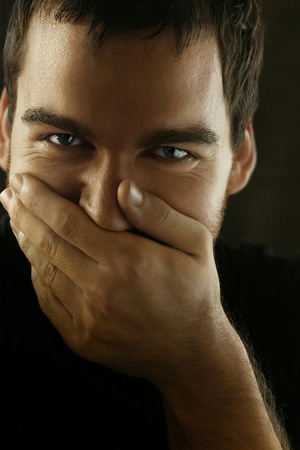Why is it that men find it so hard to go to their GP?
‘Could do better’ By Dr Rob Hicks

Men are more likely to develop high blood pressure, heart disease, cancer and to become dependent upon alcohol than women, yet on average men seek medical advice 20% less frequently than women. Basically, men are more likely to need medical advice, but less likely to seek it.
What’s getting in the way?
Well, the ‘macho’ thing for starters, the belief that to ask for help is weakness. This is particularly the case with depression, which men suffer too. There’s also the “ignore it and it will go away” scenario. Well, this may be true to a degree, but if a problem persists for more than a couple of weeks, and certainly if over the counter or home remedies are not working or the problem is getting worse, then it’s time to gird your loins and seek some medical advice. In reality, most problems are not serious and are easily and quickly treated. The sooner this happens the less time a man will spend worrying – even though he may not admit he’s worried – and the sooner the problem will be resolved. Which brings me neatly on to the next barrier men face, a fear that it will be something serious like cancer. In most cases it’s not going to be a serious problem but if it should be then the sooner it’s diagnosed and treated the better the chance of a complete cure.
A woman's domain
Ignorance plays a role too and gets in the way of men seeking health advice. This isn’t simply a lack of knowledge and understanding about the body and how it works, but also about how general practice works. After all, for many men the last time they were in a doctor’s surgery was when their mother took them. Even grown up men may have had the appointment made, and been taken to the doctor, by their partner. In a man’s defence there’s less chance for men to learn about their body, health, and how the health system works than there is for women who are provided with this opportunity and knowledge through attendances for family planning, cervical smears, antenatal care, and childhood vaccinations.
Even if a man gets to the doctor’s surgery they are likely to be faced by female staff, and surrounded by women in the waiting room. A man may feel embarrassed because he wrongly believes they’re all thinking he’s got a problem below his belly button and above his knees. Not true, men can have problems affecting any part of the body and can seek advice about any problem, not just those affecting the privates. Moreover, he may be embarrassed and not want to see or be poked and prodded by a lady doctor. Easily sorted, ask to see a male doctor.
Doing better
To be fair, over the last ten years men have got better at looking after their health, mostly because men’s health being written and talked about has made it OK, giving men permission and confidence to do so. However, there’s still a way to go before they catch up with the fairer sex. In essence, the school report would read, ‘has made some improvement but could do better’.
Article published in Uncovered Magazine Issue 1 buy here.






